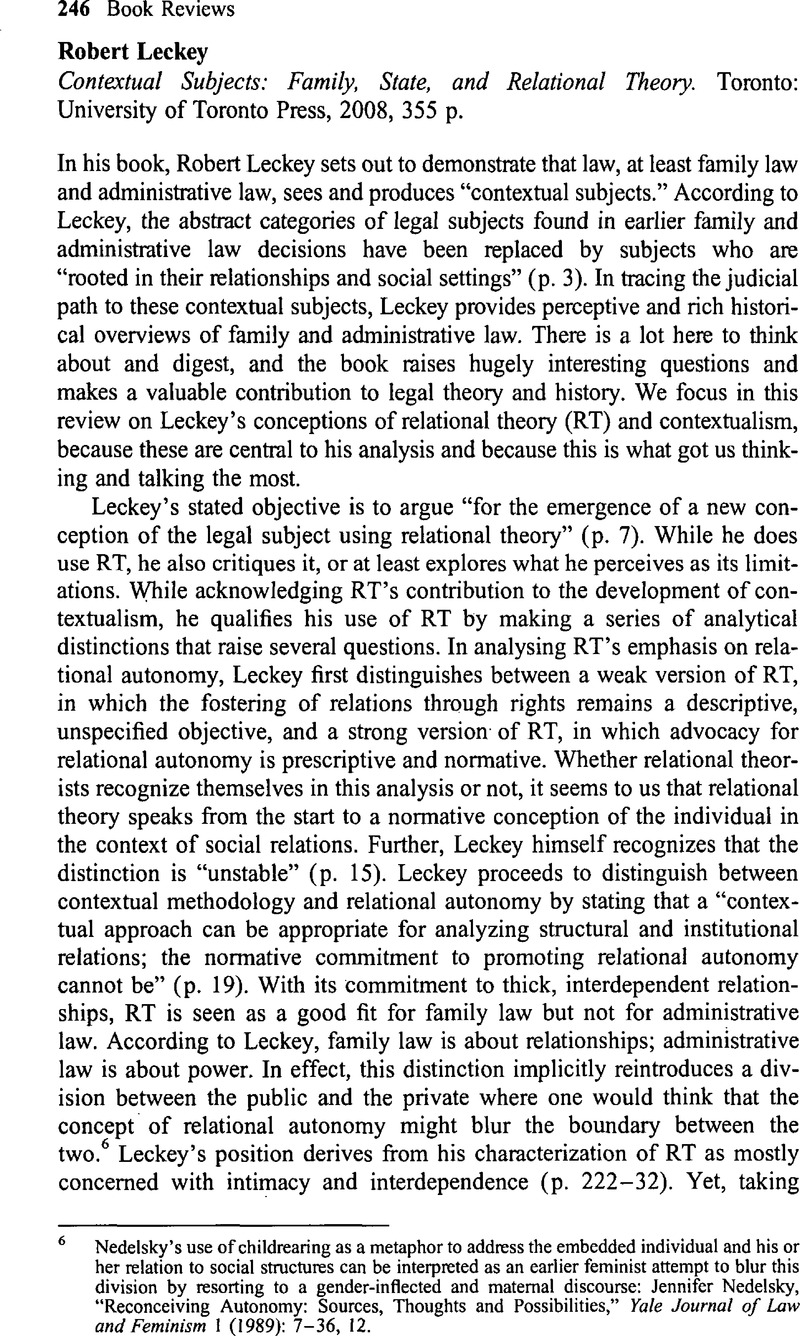No CrossRef data available.
Article contents
Robert Leckey Contextual Subjects: Family, State, and Relational Theory. Toronto: University of Toronto Press, 2008, 355 p.
Published online by Cambridge University Press: 18 July 2014
Abstract

- Type
- Book Reviews/Comptes-Rendus
- Information
- Canadian Journal of Law and Society / La Revue Canadienne Droit et Société , Volume 25 , Issue 2 , August 2010 , pp. 246 - 249
- Copyright
- Copyright © Canadian Law and Society Association 2010
References
6 Nedelsky's use of childrearing as a metaphor to address the embedded individual and his or her relation to social structures can be interpreted as an earlier feminist attempt to blur this division by resorting to a gender-inflected and maternal discourse: Nedelsky, Jennifer, “Reconceiving Autonomy: Sources, Thoughts and Possibilities,” Yale Journal of Law and Feminism 1 (1989): 7–36, 12Google Scholar.
7 “One of the oldest feminist arguments is that women are not seen and defined as themselves, but in their relations to others”: Nedelsky, “Reconceiving Autonomy,” 9. Nedelsky goes on to refer to Simone de Beauvoir's concept of the Other.
8 “Contrary to the occasional claims of relational theorists, the context is not something to be examined in isolation from distinctly normative claims” (196).
9 See Smart, Carol, Law, Crime, and Sexuality (London: Sage, 1995)Google ScholarPateman, Carole, “Self-Ownership and Property in the Person: Democratization and a Tale of Two Concepts,” Journal of Political Philosophy 10, 1 (2002): 20–53CrossRefGoogle Scholar.


